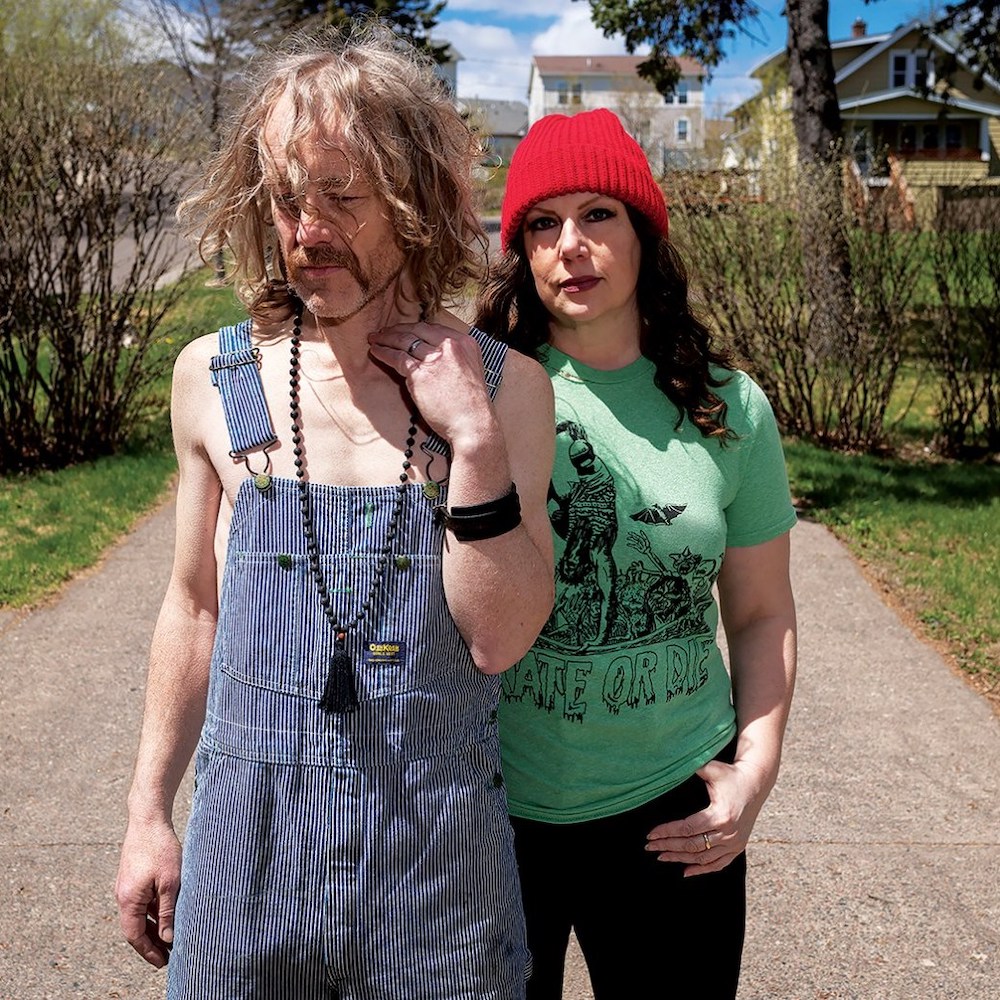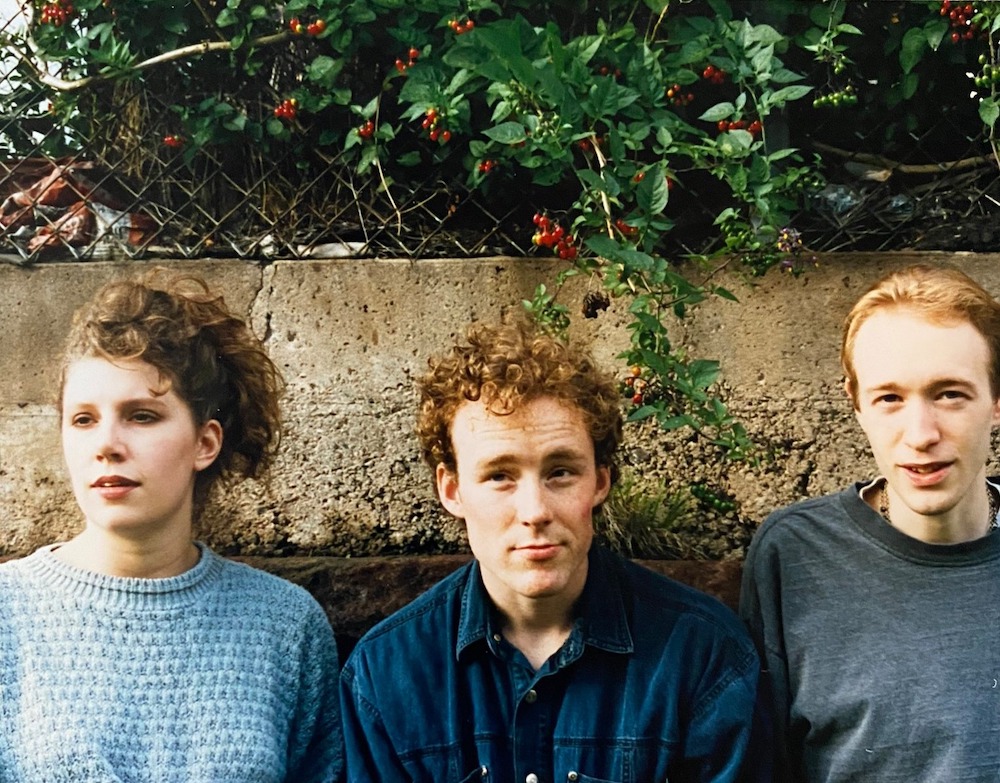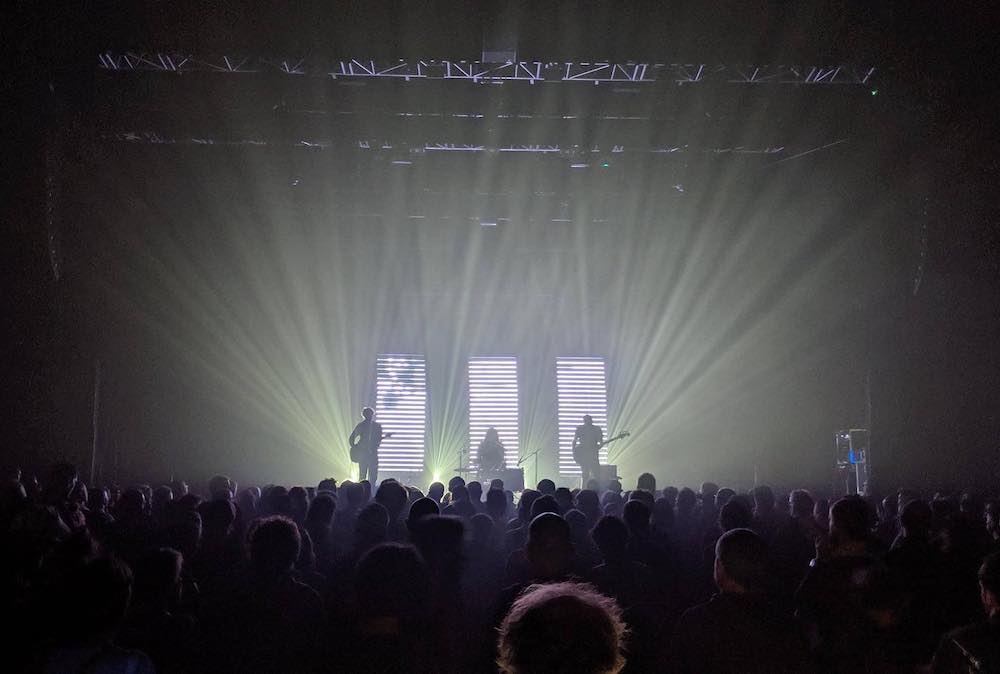In the Celtic religion there exists “thin places.” These are places where the physical world and spiritual world blur, and there is an inexplicable energy of something greater, or a sense of calm, belonging, or understanding. Sometimes that energy can be overwhelming and frightening. A few years ago I was standing on the beach in Florida, looking out at the Gulf of Mexico and feeling like such a small part of the universe. It scared me, but at the same time, there was a comforting energy washing over me. For me, that beach was a thin place, where I felt that indescribable energy.
The music of LOW is a lot like a thin place. The band’s songs – especially in their formative years – were sparse, quiet, powerful rock, or “slowcore” as it has been dubbed by listeners. The openness and minimal qualities of the music allows for the mind to wander and make of it what you will, while there is still enough to hold you captive and intrigued. The space in the songs forces us to fill in the gaps, almost as if saying, ‘we don’t have the answers, but we’re here for you.’ The music is human, but has a spiritual element to it, and it is hard to put into words the feeling’s that arise while listening to it. It’s magical.
With LOW’s 2021 album HEY WHAT, the band shifts course and fills the record with noise and walls of sound. While drastically different from their early work, the songs still have a feeling of greater power and energy that is inexplicable, but the main theme I took away from the album is hope and the power of people and community. Through the noise of the record pierces the voices of Alan Sparhawk and Mimi Parker, crisp and clear, grounding us in the midst of the organized chaos. It reminds us that even in the noisiest, darkest places, there is hope in our neighbors, friends, and family.
I got to sit down over Zoom with Sparhawk and Parker ahead of their April 7th performance at Channing Murray Foundation for a quick chat about HEY WHAT. We also talked about inspiration, pushing ourselves as humans, and the reward that comes with persistence.

Image from LOW’s Facebook page.
Smile Politely: Thank you both for taking the time to talk with me today. My first question is, is it pronounced Mee-Mee or Mih-Me? I’ve heard both.
Mimi Parker: It’s actually Mih-me, with a short “A.”
SP: I saw you played two shows in Chicago and Milwaukee in February, and now you have this break before you head back out on the road. Was that to test the “touring waters” a bit, and see how comfortable you felt touring again?
Alan Sparhawk: Yeah I don’t know that we were necessarily like, ‘here’s what we’re gonna do.’ You have to realize, like, any bands that are coming out that you go to see right now, they’ve been booked for almost nine, ten months, almost a year. Some are makeup shows too.
Parker: Yeah we didn’t really plan to dip our toe in but that’s just how it works. But I think it’s wise for us to play some live shows before a big tour.
Sparhawk: Yeah I think it was smart, it was good to try it out, it was fun you know – if it had suddenly been a week of touring, it would have taken an adjustment period.
SP: I know during the pandemic and quarantine you had been doing livestreams on Instagram. Were there other hobbies or activities that kept you busy? I saw you were doing a lot of gardening.
Sparhawk: Yeah I was able to do the garden pretty intensely for both years. We have a son who’s playing music, we do little things with him sometimes, and our daughter’s in college – it’s fun to be a part of their lives as well. They were doing cool things over the pandemic, we just made a record [laughs].

Image from LOW’s Facebook page.
SP: LOW has been labeled as “slowcore.” It was very different from what was going on in the 90s with grunge, and more heavy rock that was making waves. Was there an element of “slowcore” that drew you in? Or was it more the idea of countering the mainstream?
Sparhawk: Yeah, don’t know, it was a little of both. I was interested in all kinds of music, but there were some things that The Velvet Underground did, there was a group called Galaxy 500, and Joy Division – there were some elements about them that were very minimal and some of their songs were kind of quiet. I guess we were kind of curious about that, wondering if we could make music that’s even pushing it further. We wondered if it could be even more minimal, more atmospheric, and also kind of soft. The more we pushed them we were like, in some ways it’s kind of uncomfortable. It had an edge to it.
Then there’s the idea of going and doing a show in front of people. There’s definitely going to be people who are not ready for this. So we did a show, and there were a few people it really resonated with. It was really a shock, because you know, we’re on the bill with a bunch of other young bands that were playing loud stuff – it was cool.
SP: I think that’s awesome. A lot of bands really try to put out music just to please everyone, and I think you lose some authenticity when that happens. It’s important to push yourself in new directions, that’s when you can get interesting results. Through pushing your music into new directions, what kinds of things have you learned about yourselves?
Sparhawk: [silence] Well, that you can [laughs]. With each thing we’ve been able to do, it’s sort of a new layer of ‘oh, we can do that. We can arrange certain things, or figure out a cool keyboard part.’
Parker: Yeah, initially we were pretty minimal and then like you said, we added a few things here and there, and I think honestly as we’ve gotten more into it, we’ve taken more out. I mean even a record like HEY WHAT, there’s not a lot going on.
Sparhawk: And that’s maybe just an arrival from spending years trying different things. Unfortunately most musicians have the perception of ‘I want to do something people are going to like, I want to be able to sell my bowls’ [Parker laughs]. It’s hard. What advice do you give people other than like, ‘it’s going to be a gamble, but trust me, you’ll be a lot happier if you really pursue what you think is interesting and what’s really coming out of you.’ But yeah, chasing other people’s pleasure is a sad end.
Parker: We’ve never had a “hit,” we’ve never been forced to live in a certain time or era, so the fact that we’ve been doing it for as long as we have, it’s just been a very gradual trajectory for us and kind of allowed us to do whatever we wanted.
SP: You guys are on SubPop now. Have they been pretty hands off and pretty open to giving you creative control?
Sparhawk: Yeah yeah yeah, they’ve never told us ‘you need a single.’ Jonathan is a really amazing person, he would come see us at shows years and years before we were on SubPop. So I knew he loved us and respected what we were doing. So it’s been great to be on that label.
SP: With the new record, like you said, there are aspects of it similar to your early work, but it’s obviously a lot more loud and in your face. Was the sound of HEY WHAT always a sound you wanted to get to? Or has it just been a more natural evolution to get here?
Sparhawk: I think it’s been an evolution. Over the years we’ve been able to work with different people, helping us with different phases of our career and they taught us things. We did a couple records with Dave Fridmann, who has done many great records, and he is really forward and brave and encouraged us to trust ourselves that we could make stuff that didn’t have to sound like this or that. So we didn’t really plan it. Maybe you start writing a couple of new songs, run into a new person and think that it’d be cool to work with them. It’s better to not plan it and just let the right things happen. I’m going to enjoy the process of getting better and getting to that point, as opposed to being so bent on the goal itself.
SP: You’ve mentioned before that writing songs is a lot like going to therapy, where you kind of just let things flow out and see what lands. Has it always been that way for you, or did you initially try to write about certain topics? Personally, every time I try to write with a topic in mind, I always think ‘this is crap’ and scrap it. So I’m curious what the process is like for you.
Parker: Yeah we’ve never sat down and said ‘okay we need to write a story about something.’
Sparhawk: It’s never linear. It’s opening up a lot of times, like, you play an instrument and you play around with some ideas and you’re like ‘okay this chord is cool’ or a melody will spark, maybe a whole line will fall out, you’re like ‘oh should I say this again?’ It’s the little decision making. Everybody thinks their songs are crap. Try not to let that defeat your ambition.
Parker: It’s probably healthier to think your songs are crap because it drives you to work harder. If you think everything you write is amazing it’s like, what are you four years old? Anything a four year old writes they’re like ‘oh it’s amazing.’ Add thirty years to it, it’s crap [laughs].
Sparhawk: It’s also like running a marathon. If you weren’t training for it you’d maybe get a mile before going ‘woah, I’m done.’ But if you train for it, you could do it. Being creative is the same way. If you sit down and try to write something, your brain is going to be like ‘what are you trying to make me do?’ You’re trying to make connections that aren’t automatic. Maybe you try the next day and don’t get anywhere. But you did the same thing, and then one day it eventually comes. You have to train your brain.
Parker: A lot of times we’ll finish a record and listen to it and then look at each other like, ‘okay, I guess that’s what was going on.’ It’s very subconscious.
Ticket’s for LOW’s April 7th show with Divide and Dissolve can be purchased here.








